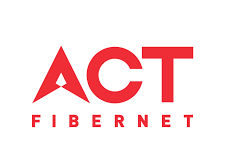 Owning a business or working independently offers a lot of flexibility, but it can also have financial consequences. While you may need funding to grow your business, purchase new equipment, or just to cover personal expenses, Personal Loans for self-employed can be a practical option. These loans cover a wide variety of uses and offer immediate funds without collateral.
Owning a business or working independently offers a lot of flexibility, but it can also have financial consequences. While you may need funding to grow your business, purchase new equipment, or just to cover personal expenses, Personal Loans for self-employed can be a practical option. These loans cover a wide variety of uses and offer immediate funds without collateral.
Here, we will explain everything you need to know about Personal Loans, from eligibility and interest rates to repayment tips.
Eligibility Criteria for Self-Employed Borrowers
The eligibility criteria differ slightly from lender to lender. However, some common things they review include:
- Age: Most lenders require a minimum age of 23 and a maximum age of 58.
- Income: You must show proof of stable income to qualify.
- Credit Score: If you wish to apply even for a ₹ 1 Lakh Personal Loan, having a good credit score will increase your chances of being approved.
Documents Needed
To make the application smooth, it’s recommended to gather your documents before applying for Personal Loans for self-employed. You will most likely need the following proofs:
- Identity and Residence Proof, such as Passport, Driving Licence, Voter ID, Job card issued by NREGA, Letter from National Population Register, Proof of possession of complete Aadhaar number
- Income proof (audited financials for the last two years)
- Latest 6 Months Bank Statement
- Office address proof
- Proof of residence or office ownership
- Proof of continuity of business
Interest Rates on Personal Loans for Self-Employed
Interest rates on Personal Loans depend on the applicant’s creditworthiness and business viability. The lender’s assessment is primarily based on your financial history and credit score. The interest rates start at 11% per annum. Applicants with stable income and high credit scores can expect lower fixed interest rates.
Here is a list of some significant factors impacting the Personal Loan interest rates:
- Creditworthiness: A higher credit rating builds trust as a responsible borrower, lowering rates offered.
- Loan Amount: The interest charge may be slightly higher on a smaller loan amount due to a shorter repayment term, such as a ₹ 1 Lakh Personal Loan.
- Repayment History: By repaying previous loans on time, you increase your credibility as a borrower.
- Business Stability: If your business is established and producing income, lenders feel confident about repayment and offer better interest rates.
Advantages of Unsecured Loans for Self-Employed
- No Security Required: There’s no need to pledge assets or property with unsecured loans.
- Fast Clearance: These loans have standardised checks and a prompt procedure, which allow quick access to funds in case of an emergency or urgent business need.
- Flexible Use: Whether for personal use or to fund a business goal, the cash can be used for different purposes, from equipment purchases to home improvements.
- Easy Access to Low Amount Loans: A small ₹ 1 Lakh Personal Loan can be easily and quickly approved for those needing lower amounts for a short duration.
- Improves Credit Score: Timely repayments will enrich your credit record, making it easier to get loans in the future.
Ways to Manage Repayments
Repaying your loan appropriately not only saves you money but also enhances your financial reputation. Here are some easy ways to repay Personal Loans for the self-employed:
- Plan your EMIs: Using an online EMI calculator, calculate how much you can pay each month comfortably, and do not stretch your budget.
- Set up Auto Debit: Automating payments prevents missed monthly payments, avoiding penalties or a drop in credit.
- Prepay Whenever Possible: If your business has earned excess income, consider prepaying or early closing the loan to benefit from the reduced interest outgo.
- Avoid Taking Multiple Loans: Obtaining many loans at a time means a higher debt burden. A higher debt-to-income ratio equals a lower credit score.
- Stay on Top of Due Dates: Always remember your EMI cycle and maintain sufficient balance before the due date.
Common Mistakes To Avoid
Many self-employed professionals face rejection or are charged with higher interest rates due to simple mistakes they could avoid. Here are a few examples:
- Inconsistent ITR Filing: Always file your income tax returns on time.
- Low Credit Score: Keep your utilisation below 30% and pay on time.
- Unverified Documentation: Always make sure your documents, such as your passport and license, have not expired.
- Ignoring the Fine Print: Always read all loan terms, specifically the prepayment charges and fees for late payments.
By avoiding these mistakes, you can receive faster, easier access to affordable Personal Loans for self-employed professionals.
Conclusion
For the self-employed, a timely line of credit can make a huge difference. Whether you need money to stabilise cash flow, grow your business, or address personal needs, Personal Loans for self-employed offer flexibility and control over how funds are utilised.
When selecting a lender, be mindful of transparency, flexibility, and dependability. Major lenders like L&T Finance are highly competitive in terms of rates, processing, and eligibility criteria. Borrow according to your needs and plan your repayments well to have a seamless experience.
 Newspatrolling.com News cum Content Syndication Portal Online
Newspatrolling.com News cum Content Syndication Portal Online







